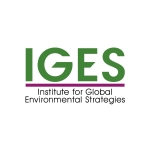TOKYO–(BUSINESS WIRE)–#A6IPCenter–The Institute for Global Environmental Strategies (IGES) is proud to announce the start of operations for the “Paris Agreement Article 6 Implementation Partnership (A6IP) Center”. The A6IP Center was established by the Ministry of the Environment, Japan (MOEJ) in response to an endorsement by this year’s G7 Ministers’ Meeting on Climate, Energy and Environment held in Sapporo in April.
The A6IP Center, with IGES as its secretariat, aims to promote the early and steady establishment of “high integrity carbon markets” based on Article 6 of the Paris Agreement (Article 6), which stipulates the use of market mechanisms. The A6IP Center is committed to facilitating the enhancement of institutional capacity and capabilities among government officials and related businesses across countries, all with the goal of expediting the development of such carbon markets.
Background
To maximise the use of Article 6 and actualise a decarbonised market that contributes to both global greenhouse gas reduction and economic prosperity, it is imperative to establish a market framework that can facilitate the development of global decarbonisation technologies and foster a high-quality carbon market capable of stimulating private investment. Simultaneously, there is an urgent need to promote understanding of Article 6 rules, establish an implementation system, invest in human resource development, and foster international collaboration, all of which are essential for the successful implementation of Article 6.
In response, MOEJ, in collaboration with related countries and organisations, worked to identify forms of cooperation and to define specific activities by sharing and analysing the status of Article 6 support. At the 27th Conference of the Parties (COP27) to the United Nations Framework Convention on Climate Change (UNFCCC) last year, Japan took the lead in launching the A6IP (https://a6partnership.org/). As of November 2023, members of the A6IP include 69 countries and 34 organisations (United Nations Agencies, Regional/ Multilateral organizations, and International NGOs/ Research Institutes).
The A6IP Center forms the core of the A6IP, and it is committed to delivering sustainable support tailored to the diverse requirements of various participating countries and institutions. Beyond the dissemination of the latest information via working groups for partner countries and institutions, as well as side events at COP28, the A6IP Center is preparing a Support Package as a key component of its capacity-building assistance to help partner countries effectively implement Article 6.
As the secretariat of the A6IP Center, IGES will work in cooperation with international organisations, in particular the Secretariat of the United Nations Framework Convention on Climate Change, the Kyoto Protocol and the Paris Agreement (UNFCCC Secretariat) and the World Bank.
[Support Package from A6IP Center]
The A6IP Center tailors every Support Package to align with the unique needs, priorities and readiness status of each partner country. This approach is designed to streamline and bolster the accomplishment of the country’s existing Nationally Determined Contribution (NDC) targets while also preparing for their enhancement in the forthcoming NDC cycle. The A6IP Center provides a comprehensive Support Package and the flexibility to choose individual support options, ensuring a customised and effective approach to support.
Support Package optional components are as follows:
- Development of Article 6 Strategy: Paris Agreement and Article 6; Enhancing ambition through Article 6; and participation requirement for Article 6.
- Authorisation: Establishment of legal and institutional frameworks for the authorisation process, which outline, for instance, the scope of authorisation, the timing of authorisation, conditions for authorising mitigation activities, and a template for the Letter of Authorization.
- Reporting: Preparation for the Initial Report, the Annual Report, and the Report on Regular Information consistent with the timelines and requirements of Article 6 reporting; methods for corresponding adjustments of emission balance; and the interplay between Article 6 reporting and Article 13 transparency reporting.
- Tracking: Use of a national registry or an international registry to be used for registration, authorisation, transfer and cancellation of internationally transferred mitigation outcomes.
- Project Initiation: Preparation of an Article 6 project pipeline; feasibility assessments of potential Article 6 projects; and development of Article 6 project concepts seeking Article 6 financing or blended carbon and climate finance.
- Methodology Development: Development of methodologies for estimating mitigation outcomes from eligible Article 6 projects; development and application of a baseline.
- Additional Topic Areas: A6IP is open to various topic areas and consultation with partner countries and institutions.
Institute for Global Environmental Strategies (IGES)
The Institute for Global Environmental Strategies (IGES) is a collaborative research and outreach organisation working to accelerate the transition to a sustainable, resilient, shared, and inclusive Asia-Pacific region, both across borders and within the world at large.
Our strategic research and operations are defined by a mission– to drive action on the world’s most critical environmental and social challenges through the delivery of trusted expertise on sustainable development and resilience.
IGES operates as an agent of change. Together with key international organisations, governments, academic institutes, business and civil society leaders we seek to foster a world where planetary boundaries are fully respected, a green economy is flexibly implemented, and the well-being of people is steadily improved. In so doing we emphasise workable and inspired approaches to cross-cutting global development issues ranging from climate change, natural resources and ecosystems management, and sustainable consumption and production, among many others.
The Institute— established in 1998 with support from the Japanese government and Kanagawa Prefecture— maintains its international headquarters in Hayama, Japan. With offices and local centres in Tokyo, Kansai, Kitakyushu, Beijing, Bangkok, and New Delhi, IGES supports a regional and global network for groundbreaking sustainable development research and practice. For more information, please visit here
Contacts
For more information, please contact:
Yuri Katsuike
Senior Communications Officer
Institute for Global Environmental Strategies (IGES)
+81 80 7410 1620
iges_pr@iges.or.jp




